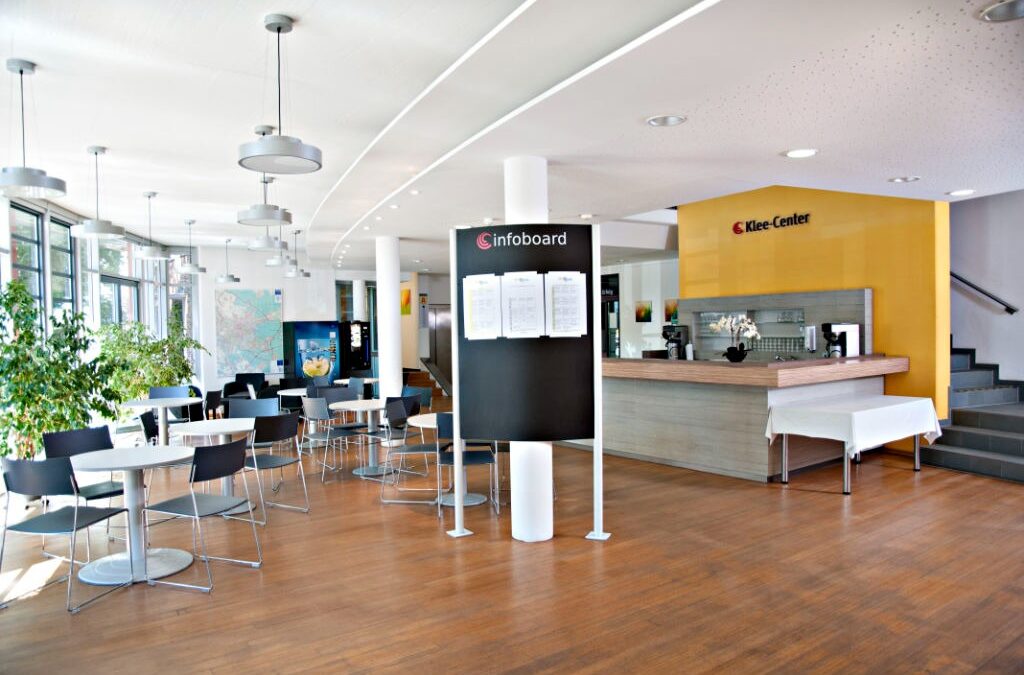Learning German opens up a world of possibilities: travel to German-speaking countries, discover a rich culture, and even boost your professional prospects. Whether you’re an absolute beginner or an advanced learner, it’s essential to know the different levels of learning so you can target your goals and monitor your progress.
This comprehensive guide takes you to the heart of the Common European Framework of Reference for Languages (CEFR) and its six levels of German proficiency. You’ll discover the skills expected at each stage, the tools for assessing them and practical advice on how to progress effectively.
The six CEFR levels for German
The CEFR is the international reference for measuring proficiency in a foreign language. It is divided into three main levels:
- Level A: Elementary mastery
- Level B: Intermediate mastery
- Level C: Advanced mastery
Each level is further subdivided into two sub-levels:
- Level 1: Introduction
- Level 2: Threshold
Level A: Elementary mastery
A1: Beginner
This level corresponds to basic use of the language in simple, everyday situations. You can understand and use short, simple sentences, introduce yourself and others, and ask and answer questions on familiar matters.
A2: Basic user
At this stage, you’ll be able to understand phrases and expressions frequently used in everyday situations, such as shopping, directions and simple conversations. You can also describe simple aspects of your daily life and environment.
Level B: Intermediate mastery
B1: Independent user
You understand the main points of a discussion on familiar and routine topics, and can handle most situations encountered when traveling in a German-speaking country. You can produce simple, coherent speech on familiar subjects and topics of interest.
B2: Experienced user
You understand the main ideas of complex discourse on both concrete and abstract topics, including technical discussions in your field of specialization. You can interact with a certain ease and spontaneity, and are able to produce clear, detailed discourse on a wide range of subjects.
Level C: Advanced mastery
C1: Experienced user
You can understand a wide range of long, complex texts, and recognize implicit meaning. You can express yourself fluently and spontaneously without much effort to find your words. You can produce clear, well-structured, detailed text on complex subjects.
C2: Mastery
You can effortlessly understand almost anything you hear or read. You can summarize information from written and spoken sources, reconstructing arguments and key ideas. You can express yourself spontaneously, fluently and precisely, and differentiate subtle nuances of meaning even in the most complex situations.
How can I assess my level of German?
There are a number of tools you can use to assess your level of German:
- Online tests: Many websites and language institutes offer free online tests to give you an indication of your level.
- Placement tests: If you’re considering taking a German course, most language schools offer a placement test to determine your level and guide you to the most suitable course.
- Official exams: To obtain official certification of your level of German, you can take exams such as TestDaF or Goethe-Zertifikat.
Tips for improving your German
- Set yourself clear, precise objectives. What do you want to be able to do in German? Communicating while traveling? Reading German books? Preparing for an exam? Having clear goals will motivate you and help you focus your learning.
- Practice regularly. The key to success is consistency. Try to practice German every day, even if it’s only for 15 or 30 minutes.
- Vary your learning materials. Read books and articles in German and watch
Resources for learning German
Many resources are available to help you learn German:
- German courses: Many language schools offer German courses at all levels.
- Online learning: There are many websites and applications for learning German online, at your own pace and according to your needs.
- Free resources: Many websites and institutions offer free resources for learning German, such as exercises, lessons and audio documents.
- Language immersion: Spending time in a German-speaking country is an excellent way to improve your German quickly and effectively.
Conclusion
Learning German can open many doors for you. With motivation, perseverance and the right resources, you’ll achieve your goals and master this fascinating language. Remember that the most important thing is to enjoy learning and not be afraid of making mistakes.
HLV Ecole de Langues Vivantes in Hammamet : Your partner for learning German
HLV Ecole de Langues Vivantes in Hammamet offers a wide range of German courses for all levels, taught by qualified and experienced teachers. We also offer placement tests, personalized training and preparation for official German exams. Please contact us to find out more about our services and how we can help you achieve your German language goals.

